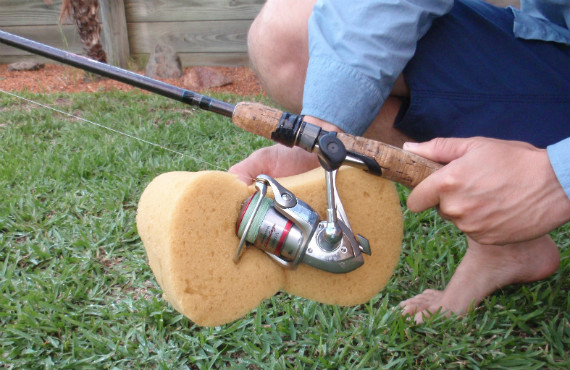
Help keep White spot out of NSW this summer
13 Dec 2017

The NSW Department of Primary Industries (DPI) is calling on the public’s help to remain vigilant this summer to ensure NSW remains free of White spot disease.
DPI is continuing its work to minimise the spread of White spot, which was detected in prawns in South East Queensland in December 2016.
DPI Manager Aquatic Biosecurity , Juliet Corish, said everyone in coastal and inland communities has a role to play in protecting our waterways.
“This summer we are calling on the community to help play a role in keeping White spot out of NSW, which is especially important when there is more activity on our waterways during the holiday season,” Ms Corish said.
“White spot is a highly contagious viral disease of crustaceans, primarily prawns, but also crabs, lobsters and freshwater crayfish as well as marine worms can carry the virus.
“Prawns are safe to eat. White spot disease does not pose a threat to human health or food safety.
“It is crucial that people fishing, crabbing or trapping yabbies in any of our waterways, do not use prawns intended for human consumption as bait, as this might spread the virus to new areas.
“We want to make sure everyone is aware of movement restrictions that apply in certain areas of south east Queensland to prevent further spread.”
Ms Corish said DPI continues to test prawns from both estuary regions and ocean haul zones along the NSW coastline.
“We will continue to conduct testing on our prawns in NSW through ongoing surveillance and sampling,” Ms Corish said.
Tips to keep your favourite fishing White spot disease free:
- Prawns and other seafood meant for human consumption must not be used as bait. Although safe for human consumption, they have the potential to spread diseases to aquatic animals when used as bait.
- Dispose of all prawn, seafood and bait waste in the bin - not in your local waterway.
- Make ‘clean’ part of your routine! Keep your fishing gear, boat and trailer clean. Use soapy water and allow to dry completely before re-use in another location
Ms Corish said as part of the NSW Biosecurity Act, all members of the community have a general biosecurity duty.
“Biosecurity is a shared responsibility and we need everyone to remain vigilant to ensure White Spot does not enter our state.”
Suspected diseases and pests can be reported to the Emergency Animal Disease Watch Hotline on 1800 675 888.
For more information about white spot, visit DPI’s website.
Media contact: Lyndall Hilder (02) 6391 3686 or 0409 383 423

